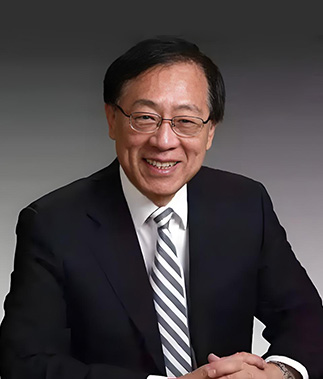
The following is excerpted and translated from the speech delivered by Dean Andrew Chi-Chih Yao at the College of AI Undergraduate Academic Exchange Day on May 24, 2025.
Our college was officially established on April 27, 2024. It has been almost a year now. The original intention of setting up the college was to focus on AI and its related fields. Our goal is to build a college of AI that is on par with world-class universities such as the Massachusetts Institute of Technology (MIT) and Stanford University.
Since we started from scratch, at the beginning, we gathered many high-end AI talents from Tsinghua University and appointed them as adjunct professors. From the very beginning, we have created an excellent academic environment for everyone, which is conducive to cultivating outstanding talents and conducting academic exchanges and research. However, our main expectation is still to actively introduce top-notch young AI talents in the future. We plan to recruit 50 full-time professors within five years. In this way, we can truly have a world-class benchmark AI college in five years. In the past year, we are very pleased to have successfully recruited ten outstanding young full-time (assistant) professors, most of whom are here today. Our goal is to develop together with other schools and departments at Tsinghua, and we hope to make Tsinghua University an AI innovation hub.
Dear students, most of you probably plan to go to graduate school. I would like to take this opportunity to talk about the great significance of cultivating high-level graduate students. In addition to the fact that universities should cultivate graduate students, in today's era, especially in the field of AI, cultivating graduate students has a particularly important significance. Since the reform and opening up, China has truly begun to rebuild the modern higher education system. In the past 20 years, I have witnessed the great progress of China from secondary education to undergraduate education. It can be said that what we have now is the world's top-notch undergraduate education system, not "one of the best", but the real best in the world. So, what is our future work? It is to do a good job in graduate education and to cultivate high-level graduate students. In practical terms, cultivating high-level graduate students is the "last mile" of talent cultivation. Some people may ask, don't we also cultivate assistant professors, full professors and so on? In fact, when you complete your graduate education, obtain a doctoral degree, and even complete post-doctoral research, you have become an independent researcher. From then on, the word "cultivate" is actually no longer applicable. It is just to provide you with an environment. After that, everyone relies on their own abilities, and there is no longer a question of "cultivation or not". Therefore, for universities, the most important task is to cultivate talents up to the graduate stage.
A good graduate student-training environment has another important significance: it is the key for our country to retain high-end talents and promote scientific and technological innovation. If we want to become a modern, independent and self-strengthening strong country in science and technology and education, this link in the talent-training chain cannot be defective. Of course, we can have internal circulation and external circulation, which are all very good, but we must be able to be independent and self-sufficient. I am very pleased to see that we have not only done the best in undergraduate education, but also in graduate education, especially in the past five years, many universities have been able to cultivate truly world-class first-class doctoral graduates. Therefore, the work we are doing today in the College of AI is to continue this development momentum and truly achieve the goals I mentioned earlier. I believe that in five years, there will be no need to consider going to other top universities, because we can do better than them right here.
Next, I would like to talk about the various research directions of our College of AI. Tsinghua University has a unique advantage in this regard because we have a very comprehensive discipline system. In today's era, especially with AI as an empowering science, it is indeed an excellent carrier. If we can have 50 excellent full-time AI professors who not only do excellent research themselves but also promote the development of our "AI+" disciplines, in our college, we will not only study the basic AI core directions that are common in undergraduate stage, but also put a lot of effort into the "AI+" field. Specifically, in the core direction, we will study new theories and efficient algorithms, and also involve cutting-edge fields such as embodied intelligence and underlying AI computing architecture. We will also pay attention to emerging fields such as AI security and governance. At the same time, in the "AI+" aspect, we will explore scientific intelligence cross-disciplinary applications, and even study future computing models, such as optoelectronic computing, quantum computing and so on.


